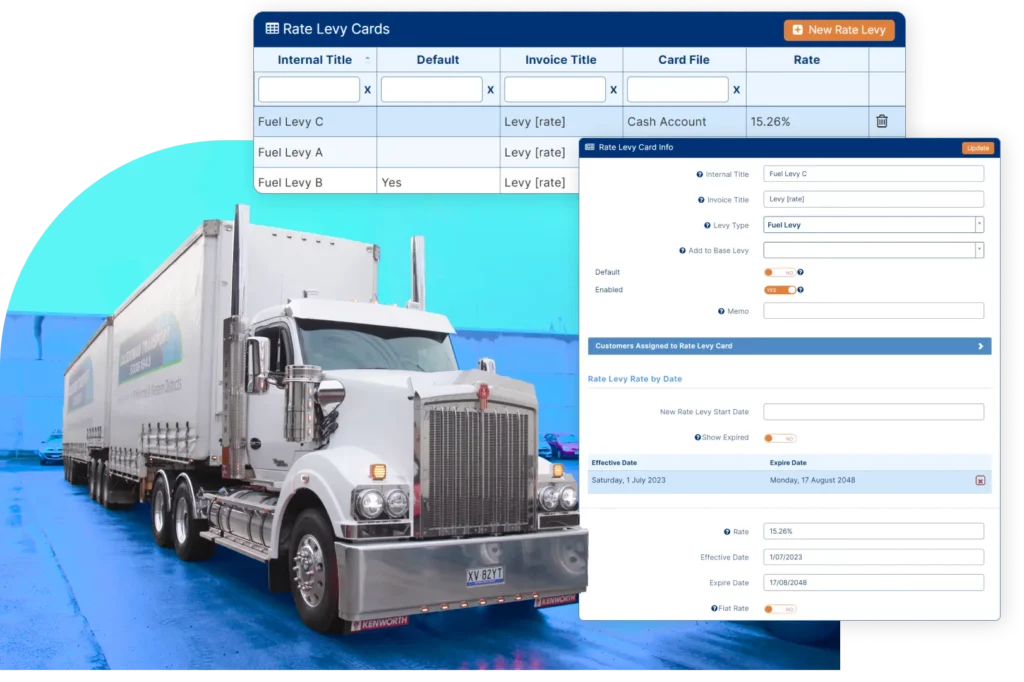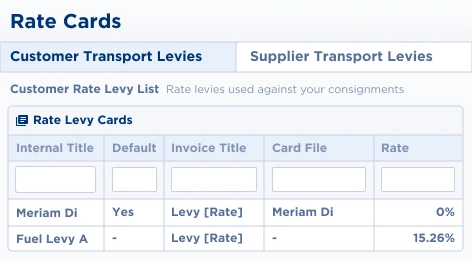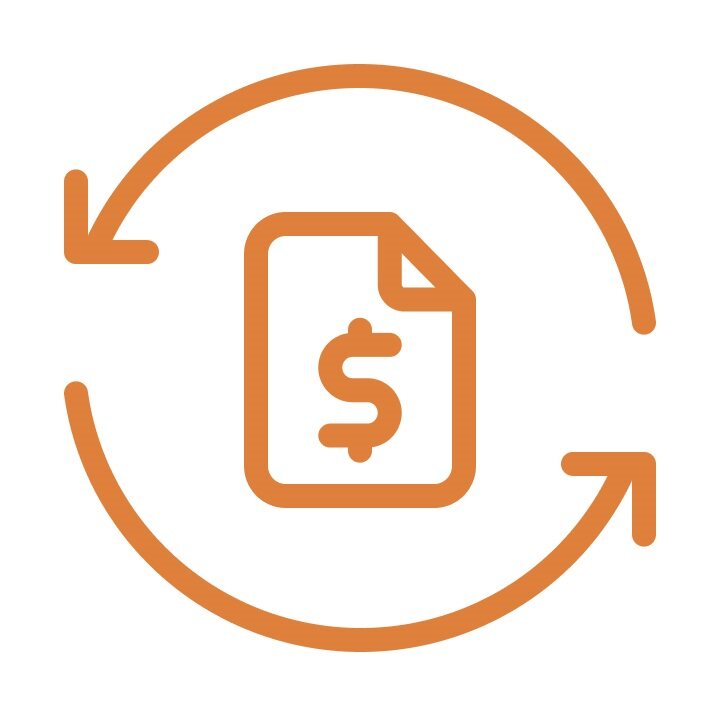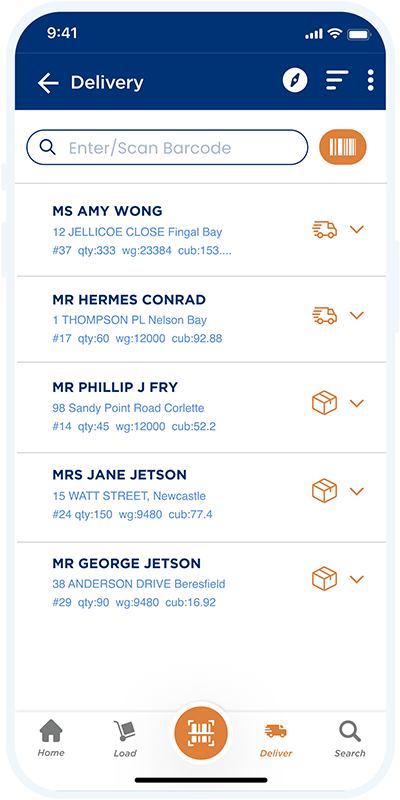Setup levies/surcharges
Prevent revenue loss with accurate fuel levy management

Trusted choice by nearly 100,000 businesses

Transvirtual gives you total control over surcharges


Before
Transvirtual
vs.
-
Manually recording surcharges
- The same surcharge tends to apply to all customers
-
Missing out on revenue opportunities
-
Disgruntled customers
- Limited flexibility in levy application across customers
After
Transvirtual
- Upload levies and surcharges on the system (and edit them later)
- Transvirtual lets you set different charges for various customers
- Manage margins without raising base rates
- More transparency, building trust among customers
- Tailor levy rates for different customers, zones, and freight types
Seamlessly manage fuel levies and other surcharges


Dynamic Fuel Management

Customer-Specific Rates
How do fuel surcharges work?

Calculating Fuel Charges

Communicate Fuel Surcharges
Join over 10,000+ ecstatic transport and logistics companies
Our transport solutions have over 500 configurable features designed to solve your most complex challenges

Our entire business has been positively impacted by the TransVirtual technology solution, it has allowed the business to scale without creating or increasing inefficient manual
processes.
Built for scale

Anthony Tanner
CEO, VT Freight Express

TransVirtual has reduced customer enquiries by 50% and given our customers full visibility throughout the delivery process. We have also been able to review set routes and find major
cost savings.
50% reduction in customer queries

Luke O’Shannassy
General Manager, Caledonian Transport
Automation prevented revenue leakage within the business, so a massive benefit for us from a profit perspective, that automation also allowed us to significantly reduce our staff headcount.
40% increase in revenue

Richard Tesoriero
CEO, Hunter Express

Our entire business has been positively impacted by the TransVirtual technology solution, it has allowed the business to scale without creating or increasing inefficient manual
processes.
Built for scale

Anthony Tanner
CEO, VT Freight Express

Automation prevented revenue leakage within the business, so a massive benefit for us from a profit perspective, that automation also allowed us to significantly reduce our staff headcount.
40% increase in revenue

Richard Tesoriero
CEO, Hunter Express

TransVirtual has reduced customer enquiries by 50% and given our customers full visibility throughout the delivery process. We have also been able to review set routes and find major
cost savings.
50% decrease in customer queries

Luke O’Shannassy
General Manager, Caledonian Transport
Frequently asked questions
A fuel levy or surcharge is a fee added to the base rate of shipping or transportation services to compensate for the rising cost of fuel.
The specific formula varies but fuel surcharges are typically calculated as a percentage of the base transportation rate (e.g., 10% of the freight charge). Some companies also charge based on distance or weight (e.g., cents per mile or per kilogram).
Yes, Transvirtual allows you to create customer-specific surcharge rates based on your business relationships and agreements.
You can create various types of surcharges including fuel adjustments, peak season fees, special handling charges, or location-based fees to accurately reflect your operational costs.
Still have questions?
Speak to an expert


Let's solve your key challenges
Talk to one of our Transport Management System strategists to save you time and money. Your customers will thank you!
Book your strategy session now to:
1
Share your key problems
2
Receive high level solutions
3
As a good fit you’ll
book in a tailored demo





